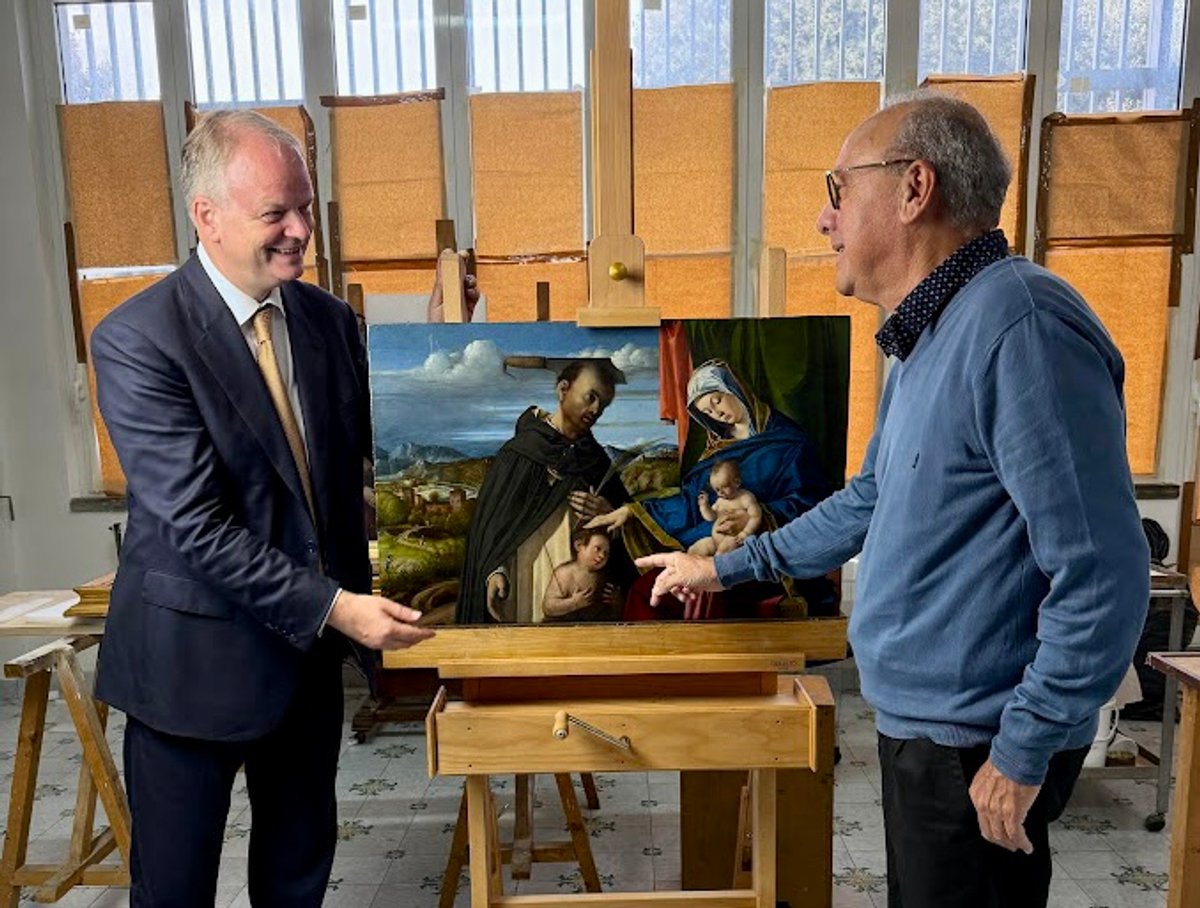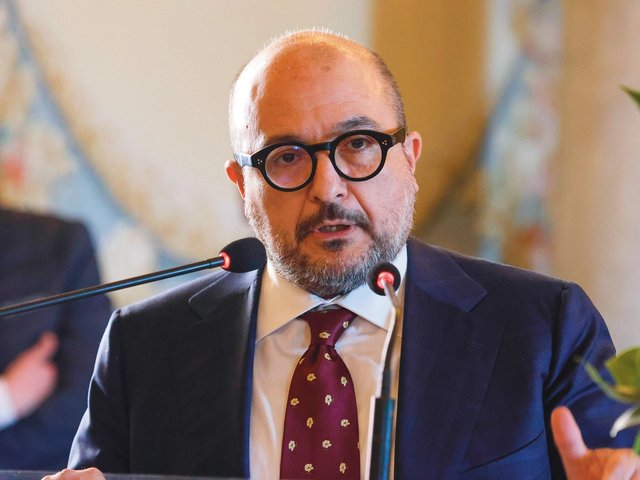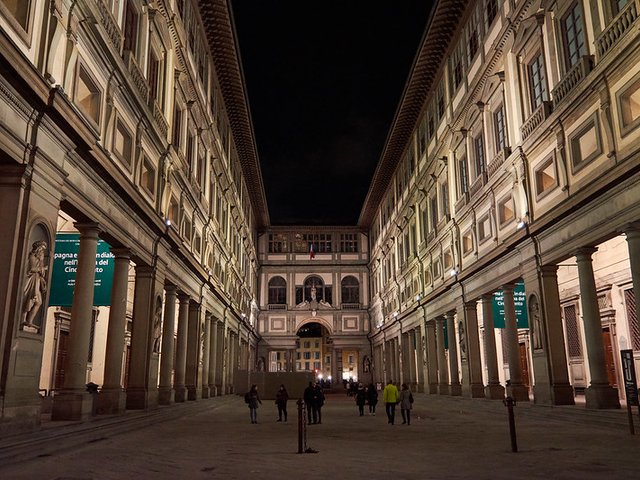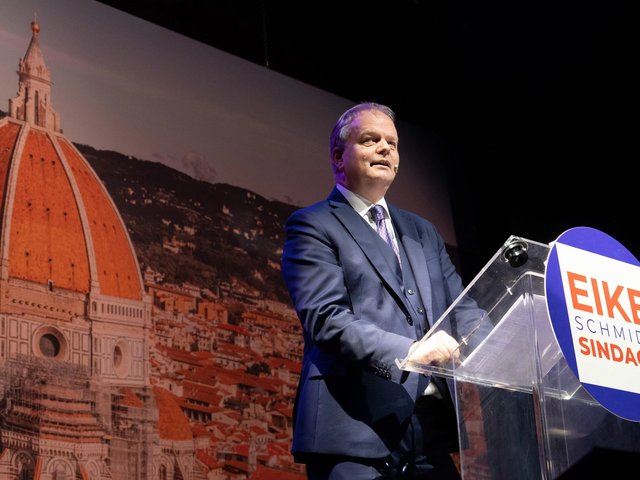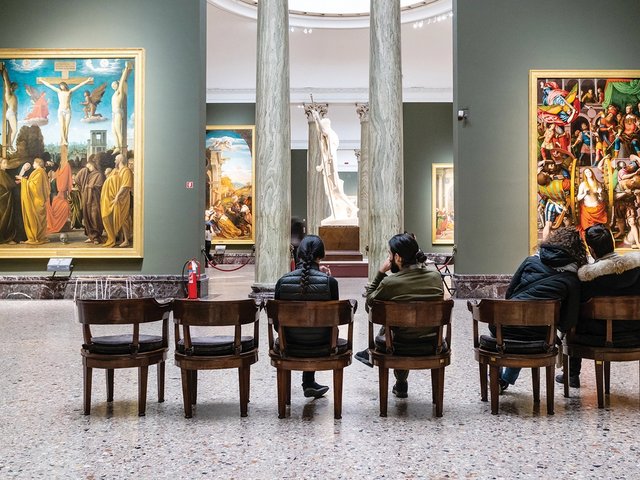Eike Schmidt, the director of Naples’s Museo di Capodimonte, has announced a new “age of major restorations” as he seeks to reestablish his reputation as a museum chief following his recent defeat in Florence’s mayoral elections.
Twenty-one Renaissance paintings from the collection of the Capodimonte, Naples’s most prestigious state-run museum, will be returned to their former glory over the next two years. Selected works collectively span a period from the 14th to the 16th centuries. The project will get underway from December, when restorers will move into two exhibition rooms that have been specially transformed into restoration laboratories and are viewable from the outside. Working under the gaze of passing visitors, they will work on five works at a time.
Schmidt, who headed Florence’s Uffizi Galleries before taking over at the Capodimonte museum in January, announced the project as he unveiled the newly restored Madonna con Bambino e San Pietro Martire (1503) by the Venetian painter Lorenzo Lotto. The project was realised with the support of the Staatsgalerie Stuttgart. “A richness of chromatic tones has re-emerged that harks back to the great Renaissance period of Venetian painting, with a stunning landscape seen from a bird's eye view,” Schmidt said of the restoration in a statement.
Prior to the museum's latest project, last week, Schmidt presented Gustave Courbet’s Les Demoiselles des bords de la Seine (1857), on loan until February from Paris’s Petits Palais museum. “With this exhibition we are opening a new space dedicated to the dialogue between Capodimonte and other international museums, which will bring significant works from the history of art around the world to Naples,” Schmidt said at the time.
In a further project, last month, 18 masterpieces by artists including Titian, Carracci and Caravaggio returned to the museum following international loans. They are being shown in a single display exploring the history of collecting.
The flurry of initiatives follows Schmidt’s defeat in mayoral elections in Florence in June. The German-born museum director had stood as an independent candidate backed by a coalition of right-wing parties led by Giorgia Meloni’s Brothers of Italy party that was seeking to overturn a historic left-wing grip on power locally. Schmidt ultimately lost to the centre-left Democratic Party’s Sara Funaro, mustering just 39.4% of the vote in a final one-on-one run-off.
Schmidt had taken temporary leave from his role at the Capodimonte museum, drawing the ire of Vincenzo De Luca, the left-wing governor of the Campania region, who described his decision as “offensive”. Schmidt has since returned to his job at the Capodimonte, a role he juggles as the leader of opposition councillors in Florence.
While Gaetano Manfredi, Naples’s left-wing mayor, has claimed Capodimonte needs a “full-time director”, Schmidt has noted that other prominent museum directors have successfully divided their time between two or more cities. Claiming he has balanced the museum’s books since first being appointed, Schmidt has announced plans to make the museum more energy efficient and refurbish spaces to display recently donated porcelains.


